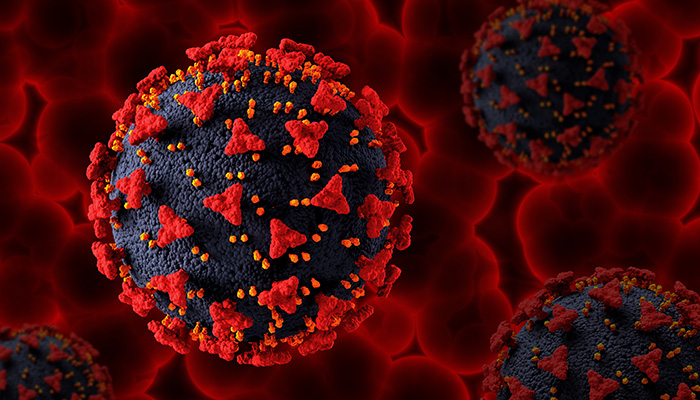Many potentially harmful viral infections may be deceptively silent. One such infection is that of the cytomegalovirus. The body is equipped to fight many infections, yet it is good to know how to treat and prevent them.
About Cytomegalovirus Infection
Cytomegalovirus (CMV) is a virus of the herpes family that infects most people worldwide, and once acquired remains harmlessly dormant in the body for life. The virus is kept in the harmless inactivated state by the defense system of the body, called the immune system. If the immune system becomes weak either by disease or by drugs used to suppress its activity, it can activate the virus and cause CMV disease.
CMV transmission
CMV has a direct person to person spread. Anybody who harmlessly harbors the virus can pass it to others. The person may not be symptomatic to be able to know that he may unknowingly transmit the infection to others. This happens because the virus is found in many body fluids, including urine, blood, saliva, semen, cervical secretions, and breast milk of infected people. Close contact allows the infected body fluids to pass from one person to another. Hand-to-mouth contact with infected fluids facilitates the spread. Touching of nose or mouth with infected hands allows spread as the virus is absorbed through the mucous membranes. The spread is widespread in child-care centers and in households which have an infected person. Besides these, CMV can spread by sexual contact, blood transfusions, organ transplants, and breastfeeding. CMV can also be passed from an infected pregnant mother to the developing baby in her womb.
All people are at the risk of acquiring CMV. Almost all adults are exposed to infection in the past. Pregnant women who work with infected children, babies born to mothers who have a first-time CMV infection during pregnancy, organ transplant recipients, patients getting immunosuppressive medicines for cancer, and those with AIDS are specifically more prone to develop a serious infection.
Symptoms
Healthy individuals rarely experience any symptoms. The infection is largely asymptomatic and one may not be aware of the infection. Symptoms are seen when the health of an individual deteriorates and the defenses of the body are weakened. When infected for the first time, adults may experience tiredness, weakness, night sweats, fever, loss of appetite and weight, body aches and muscle soreness. There may be swollen and enlarged glands in the neck along with a sore throat. Not specific fro CMV, these symptoms may be short lived. Thus, an infection can go unrecognized. In immunocompromised adults, the symptoms may depend upon the organs affected. If the digestive system is involved, there may be diarrhea with bleeding. Involvement of lungs cause damage of lung tissue called pneumonia and a decline in capacity of lungs to oxygenate the blood. Blindness and visual impairment may result if the eyes are involved. Inflammation of brain can lead to convulsions, behavior changes, and coma. If the infection is acquired for the first time in pregnancy, the mother may be asymptomatic, though the infection may pass to the developing baby. Most newborns do not show any signs of infection at birth and are normal. Signs may develop after few months to years. The commonest impairment in babies is a loss in hearing. Vision may also be compromised. Besides these, there may be a small head, mental disability, and risk of death. Immediate signs in newborns at birth include development of jaundice, i.e. yellowing of the eyes and skin, rash or patches on the skin, pneumonia, convulsions, and a small size at birth.
Diagnosis
The diagnosis is made by collecting the relevant samples according to the organ systems involved and testing them for presence of viral material. The samples that are examined include urine, blood, throat swab, or other body fluids. The samples may also be tested for presence of antibodies. These are special proteins produced by the immune system in response to infection and these help the immune system to fight the infection. Depending upon the organ involved, tests may be done to determine the function of the system. X-ray, CT scan of head, ultrasound, and other tests may be done. The blood tests for antibody detection can be done in pregnant women. If positive for antibodies, then such women are very unlikely to pass the infection to the babies. The doctor may examine a sample of fluid that bathes the baby in the wound to look for CMV infection. This sample is obtained through the abdomen of the mother. If a newborn is suspected to have acquired the infection by birth, then testing for CMV should be done in first three weeks of life, after which the tests may not be conclusive of a congenital infection. Periodic screening is however required in immunocompromised people.
Treatment
There is no specific treatment for CMV. Medicines like ganciclovir and valganciclovir that act against viruses may be used in the HIV patients, and also for vision threatening eye infections. Newborn babies, organ-transplant recipients, and people being treated for cancer or who have immune disorders such as AIDS need treatment for life threatening CMV infections. The antiviral medicines in them may be given as infusion into the blood vessels. Oral therapy may then follow when infection is controlled. These medicines do not cure the infection though they help to arrest the multiplication of the virus. Treatment depends upon the organ involved.
Prevention
There are no vaccines as yet to prevent infection with CMV. Hand washing is very effective in control of spread of the infection. Hand washing prevents infection even in the pregnant women. Soap and water are the best option for hand washing. Infected mothers should not stop breast feeding. Even if the baby acquires the infection through breast milk, there are not many chances of development of symptoms. One should avoid the use of utensils and personal belongings. After handling tissues and diapers that are contaminated with infected fluids, one should avoid touching the face until hands have been thoroughly washed. Blood and organ banks should have screening and processing procedures in place to prevent the spread of infection through these products. It is best to keep good personal hygiene and practice safe sex. CMV is a common infection. It can be best controlled with precautions. Ongoing research may yield medicines and vaccines in future for CMV.




